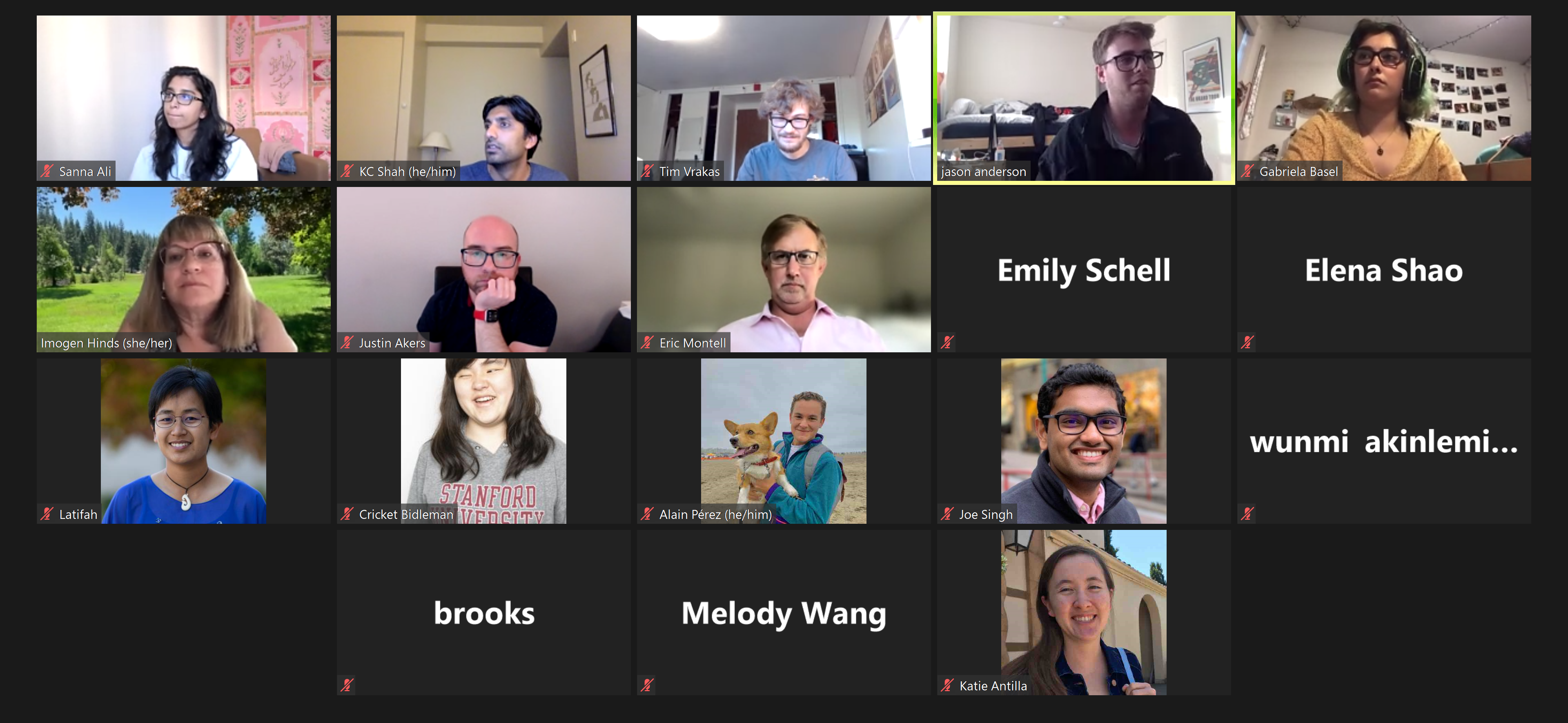The Graduate Student Council (GSC) unanimously passed a resolution encouraging the permanent elimination of standardized testing requirements in undergraduate admissions at its Wednesday meeting.
The council’s support of the resolution comes weeks after it was passed in the Undergraduate Senate, solidifying student government’s call for change to the University’s standardized testing policies. Last year, the GSC narrowly passed a similar resolution to eliminate the Graduate Record Examination (GRE) requirement across Stanford’s graduate programs. Though some Stanford graduate programs eliminated the standardized testing requirement for applicants last year, the change was only temporary, with the requirements returning for the current application cycle.
This time, the appeal has some added momentum: Earlier this year, the University of California system joined a growing group of higher education institutions when it announced plans to phase out SAT and ACT testing requirements over the next four years.
To GSC councilors, one of the points at the heart of the movement is the argument that standardized testing can perpetuate a system of discrimination against marginalized communities. Recent data shows that Black and Hispanic or Latino students routinely score lower on the math section of the SAT, which likely stems from a long history of exclusionary housing, education and economic policy.
Standardized testing requirements can discourage many potential applicants from even applying to undergraduate and graduate institutions, according to Sanna Ali, a GSC co-chair and fourth-year communications Ph.D. student.
“It’s a real barrier, both financially and psychologically, and if Stanford cares about diversity and removing those barriers, then they should eliminate the GRE and SAT,” Ali said.
The College Board, which administers the SAT, attempted in 2019 to level the playing field for students by evaluating their social, economic and family background via an “adversity score” on a 100-point scale. The College Board ultimately reversed course after the proposal drew heavy criticism from those who claim that it would have a negative impact on anti-discrimination efforts, bringing the test “closer to its conflicted origins.”
The resolution contends that, in addition to the concerns of inequity in standardized testing, there is little linkage between standardized testing scores and college success. GSC co-chair KC Shah J.D. ’22 said that the tests were “duplicative or extraneous” in an admissions application.
The GSC also moved one step closer to filling the two vacancies on the council. Currently, there is one seat available for an at-large representative and one for the School of Earth representative. Four graduate students — Cricket Bidleman ’21 M.A. ’22, Will Yin ’22, who is also pursuing an M.S. in computer science, Chloe Glikbarg ’21 M.S. ’22 and Jason Anderson, a second-year Ph.D. student in aeronautics and astronautics — expressed interest in filling the at-large seat. Bidleman’s decision to run comes just days after she resigned from her position as Associated Students of Stanford University vice president.
According to the council’s bylaws, “the winner shall be determined by exhaustive ballot, with elimination of the candidate with the least votes after each round.” GSC councilors will vote to fill the vacancy during next week’s meeting.
Councilors also discussed potential upcoming changes to on-campus COVID-19 guidelines at the meeting. Anderson delivered a petition requesting that the University reopen all Residential and Dining Enterprises (R&DE) facilities after most public health restrictions are lifted on June 15.
The petition, which has received more than 150 signatures, urges the University to be proactive and provide guidance about gatherings for vaccinated individuals as well as open up shared spaces in Escondido Village Graduate Residences and Rains.
“I think this is a very important issue because Stanford’s guidance is usually about three to four months behind CDC guidance, state guidance and local guidance,” Anderson said, adding that the issue has added importance given that a larger number of students will be living on campus this summer than most years.
Executive director of R&DE Student Housing Operations Imogen Hinds explained that R&DE and the Graduate Housing Advisory Committee have discussed the topic extensively and are preparing to adjust policies on June 15.
Ali added that “it seems like they are sincerely working to get those spaces, and maybe this petition will add a little bit of pressure.”
